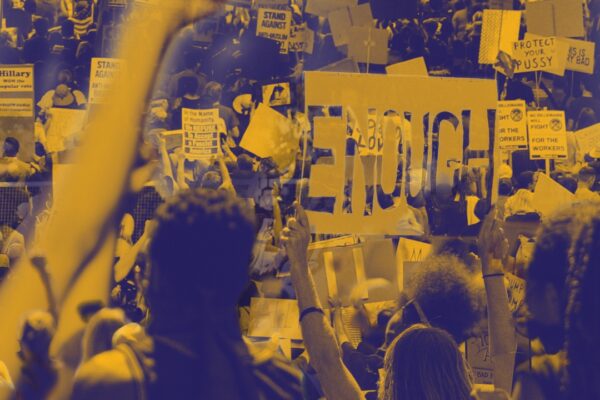The U.S. and New Mexico Constitutions protect the right to free speech—no matter how offensive its content.
- An open society depends on education and the free exchange and expression of ideas.
- When public colleges or universities restrict speech—even controversial or offensive speech—they violate the Constitution.
Public colleges and universities can impose reasonable time, place, and manner restrictions on speech. For example, they can tell students to lower the volume of amplified sound outside classroom buildings so noise doesn’t interfere with other students’ learning.
Free speech does not protect targeted, discriminatory harassment, incitement to violence, or true threats.
Our democracy also has a long history of courageous resistance through civil disobedience.
- Civil disobedience may involve occupying government buildings, blocking traffic, or engaging in other unlawful activities. Civil disobedience is not protected by the Constitutions. That means you can be arrested if you engage in civil disobedience. But sometimes that’s the point.
What happens if you’re arrested?
Prepare yourself and your community in case you are arrested. Memorize the phone numbers of your loved ones and your lawyer. Make emergency plans if you are a caregiver or take medication.
Remember: police lie. Don’t trust anything the police say.
- Immediately say, “I’m exercising my right to remain silent. I want a lawyer now.”
- Stay silent after that! Don’t answer any questions or give any explanations or excuses.
- If you can’t afford a lawyer, you have the right to be provided with one for free.
- Don’t say anything, sign anything, or make any decisions without a lawyer.
You have the right to make a local phone call. The police cannot listen if you call a lawyer. They can and often will listen to a call made to anyone else.
- To reduce your risk, do not resist arrest, even if you believe the arrest is unfair. Follow the officers’ commands.
If you believe your university, your college, or the police have violated your rights, submit a complaint to the ACLU of New Mexico. The more details, the better. Include information like dates, names, badge numbers, and witnesses.
Stay Informed
Sign up to be the first to hear about how to take action.
By completing this form, I agree to receive occasional emails per the terms of the ACLU’s privacy statement.
By completing this form, I agree to receive occasional emails per the terms of the ACLU’s privacy statement.

